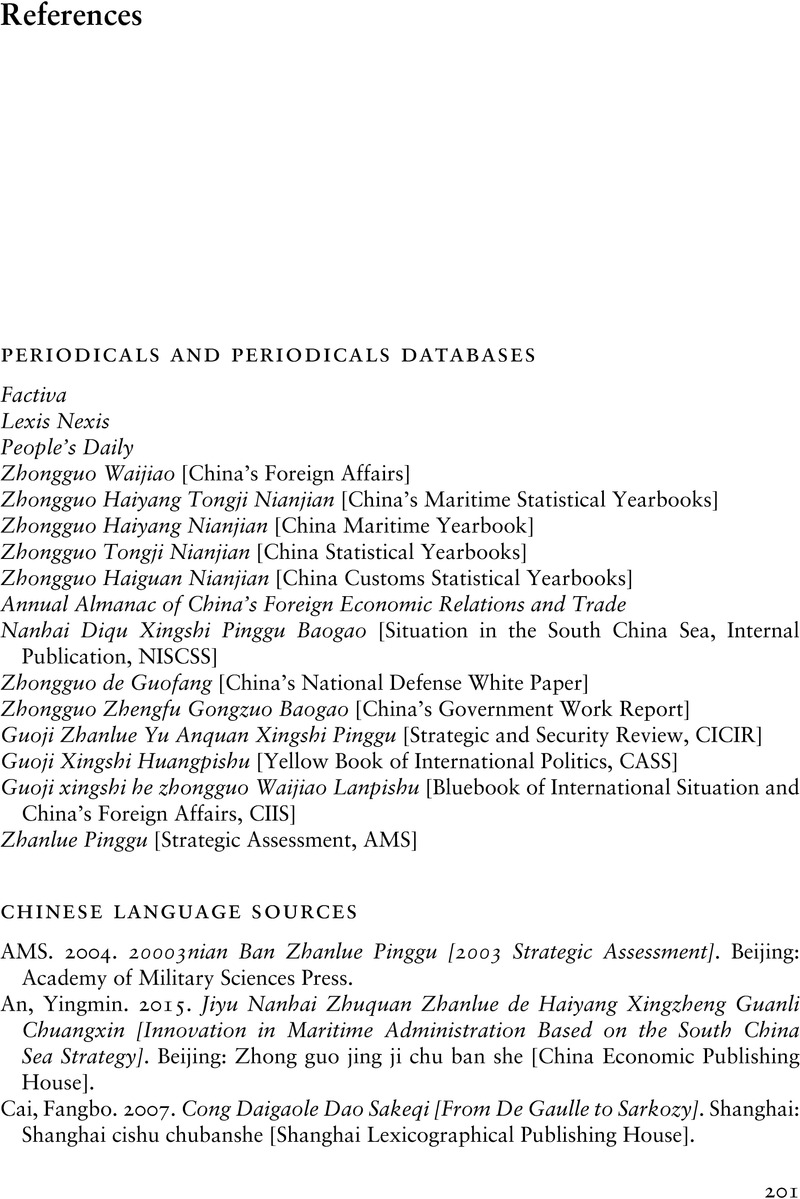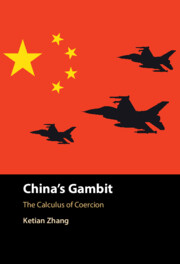Book contents
- China’s Gambit
- China’s Gambit
- Copyright page
- Dedication
- Contents
- Figures
- Acknowledgments
- Abbreviations
- 1 Introduction
- 2 The Cost-Balancing Theory
- 3 Coercion in the South China Sea
- 4 Sino-Japanese Disputes in the East China Sea
- 5 Coercion in Cross-Strait Relations
- 6 Tibet and the Dalai Lama Visits
- 7 Conclusion
- References
- Index
- References
References
Published online by Cambridge University Press: 30 November 2023
- China’s Gambit
- China’s Gambit
- Copyright page
- Dedication
- Contents
- Figures
- Acknowledgments
- Abbreviations
- 1 Introduction
- 2 The Cost-Balancing Theory
- 3 Coercion in the South China Sea
- 4 Sino-Japanese Disputes in the East China Sea
- 5 Coercion in Cross-Strait Relations
- 6 Tibet and the Dalai Lama Visits
- 7 Conclusion
- References
- Index
- References
Summary

- Type
- Chapter
- Information
- China's GambitThe Calculus of Coercion, pp. 201 - 222Publisher: Cambridge University PressPrint publication year: 2023



